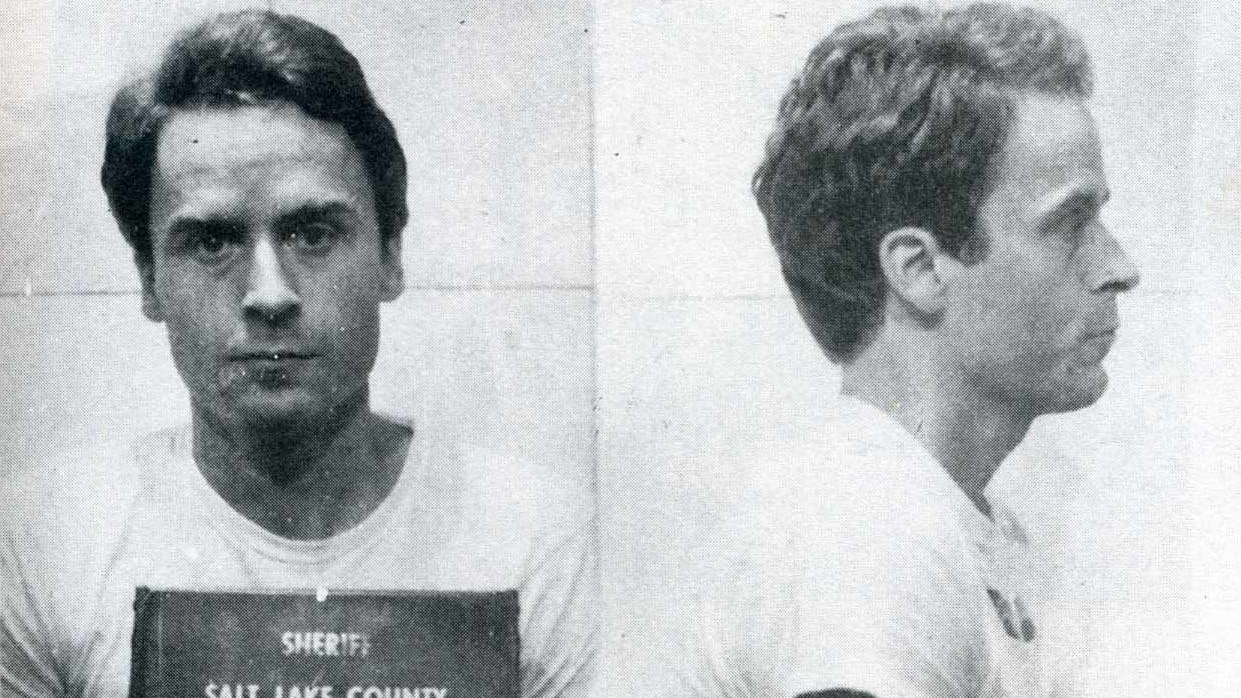Coldly preying on the vulnerable and causing innocent people untold depths of misery; it’s a curious aspect of human nature that these sad, deranged, hateful little bastards have inspired more great songs than all the world’s best surgeons, teachers and volunteer aid workers put together. Some bands – like Chicago death metal cornballs Macabre and Japanese doom stalwarts Church Of Misery – sing about nothing but serial killers, but it’s a perennial and prolific theme across the genres, as this collection of songs proves.
11. Screaming Lord Sutch – Jack The Ripper (1963)
With its resounding Joe Meek production, this Monster Raving Loony’s ribald rockabilly take on the horrific events of 1888 remains a dead cert for every Halloween party until the end of time. Sutch presages the comedic musical treatment of true-crime atrocities – later seized upon by Macabre – with lines like “He really catches up when the lights go down… ‘Cos that’s the time he starts his dirty chop-around”. The BBC were appalled, and banned the song from the network. Too soon?
10. Swans – Killing For Company (1995)
This shoegazey ballad melds the band’s early transgressive violence with the emotional nuances of their 90s output. The result is a bleakly beautiful love song to a corpse from the perspective of ‘Muswell Hill Murderer’ Dennis Nilsen, although Swans frontman Gira played down the serial killer element, insisting “it’s more about loneliness. What seems interesting to me is the question: what is going on with someone who kills a person, has sex with a body, puts make-up on it and bathes it afterwards?”
9. Cheap Trick – The Ballad Of TV Violence (1977)
One of the Illinois power-poppers’ hardest-hitting songs, this ripping metallic stomp was originally after Richard Speck – an attempt to climb into the fractured mind of Illinois’ local nurse-killer – until Epic Records objected and a degree of ambiguity was introduced. Closing their debut’s A-side (on later CD reissues it’s the album closer) with some impressive Robin Zander screaming, …TV Violence still pops up in Cheap Trick’s setlist to this day.
8. The Smiths – Suffer Little Children (1984)
Morrissey was a little boy in Manchester when the child murders of Brady and Hindley horrified the nation in the mid-60s. This poignant tribute to their young victims proved controversial when released as the b-side to The Smiths’ Heaven Knows I’m Miserable Now. Some were upset that Morrissey addressed the three children by name (a year after the song’s release, the ‘Moors Murders’ confessed to two more killings), but the singer stressed his sincerity in correspondence with Lesley Ann Downey’s mother Ann West, which blossomed into friendship.
7. Thin Lizzy – Killer On The Loose (1980)
This bloodthirsty rampage is arguably Thin Lizzy’s heaviest metal moment, and inarguably their crassest; the single was released less than a month after the Yorkshire Ripper murdered his twelfth victim. “It was extremely bad timing on our part,” conceded Scott Gorham in a Metal Hammer interview, adding: “Looking back on it now I think it was pretty senseless to release that record.” The promo clip, with Phil Lynott stalking sex workers in a back-alley, didn’t help.
- How AC/DC Changed My Life, by Dave Mustaine
- Cheap Trick - Buyer's Guide
- The 10 Best Slayer Songs, 1983 - 1990
- Korn’s Davis sued over failed serial killer museum
6. Sonic Youth & Lydia Lunch – Death Valley ’69 (1984)
“When you’re 10 and the Manson Family killed the Summer Of Love, it makes a big fucking impact,” argued punk art poet Lydia Lunch in Steve Chick’s Psychic Confusion: The Sonic Youth Story, elucidating the themes behind this churning maelstrom of spooky heavy noise rock (the guitar sound was dubbed ‘the hurricane’ by producer Martin Bisi). The Bad Moon Rising closer’s Manson-themed stream-of-consciousness lyrics were written by Lydia and guitarist Thurston Moore during a bus ride across New York City.
5. AC/DC – Night Prowler (1979)
Normally the killer inspires the song; in this case, it was alleged, the song inspired the killer. When Richard Ramirez left his AC/DC hat at the scene of a murder in 1984, the Aussie rockers were literally demonised by the press, who gave the killer the lurid nickname ‘Night Stalker’ surely as a sly variation on Highway To Hell’s sprawling bluesy closer. LAPD Officer George Thomas claims Ramirez “hummed” Night Prowler during his confession, but Malcolm Young insisted the song was about “things you used to do as a kid, like sneaking into your girlfriend’s bedroom.”
4. Jane’s Addiction – Ted, Just Admit It (1988)
“It was written right at the moment I was frying on acid and watching a video called Murder: No Apparent Motive,” explained Jane’s Addiction frontman Perry Farrell to BAM Magazine in 1988, when Ted Bundy was still maintaining his innocence after 13 years in prison (give or take a couple of months on the run). He confessed to 30 murders a year later, shortly before his execution; perhaps this darkly comic epic funk jam helped change his mind.
3. Siouxsie And The Banshees – Night Shift (1981)
“Night Shift was about the Yorkshire Ripper, not Bela Lugosi or whoever,” Siouxsie told Time Out in 1998, distancing herself from the “pantomime” excesses of goth. It’s hard to pin down details to the song’s shifting perspectives, but Peter Sutcliffe had finally been arrested after 13 murders and a five-year police investigation at the beginning of 1981, the year Juju was recorded and released, so the case was all-pervasive at the time.
2. Slayer – Dead Skin Mask (1990)
In a way, 1950s Wisconsin necrophile Ed Gein was one of the most influential figures of the 20th century, inspiring horror movies Psycho and Texas Chainsaw Massacre and songs by Siouxsie And The Banshees, Blind Melon, Mudvayne, Tad, Killdozer, Lordi and Manilla Road. But with this creepy slow-burner Slayer gave us the definitive musical setting for Gein’s twisted mind. With melodic solos and poetic lyrics it’s uncharacteristically subtle – until a trapped boy starts screaming over the closing chorus.
1. Rolling Stones – Midnight Rambler (1969)
Surely the grandaddy of salacious serial killer ditties, the Stones’ self-proclaimed “blues opera” was inspired by the Boston Strangler, although Mick seems cagey about the true-life source in the uncompleted line “Well you heard about the Boston…”. The Rolling Stones frontman shifts to the killer’s perspective for the last (and nastiest) line, “I’ll stick my knife right down your throat baby, and it hurts”, often performed live by Mick bathed in red light, dramatically enacting the crime.

